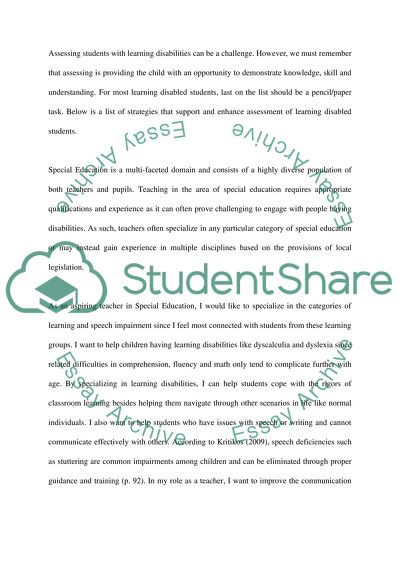Cite this document
(“Assessment & Special Education Essay Example | Topics and Well Written Essays - 1250 words”, n.d.)
Retrieved from https://studentshare.org/education/1430175-assessment-special-education
Retrieved from https://studentshare.org/education/1430175-assessment-special-education
(Assessment & Special Education Essay Example | Topics and Well Written Essays - 1250 Words)
https://studentshare.org/education/1430175-assessment-special-education.
https://studentshare.org/education/1430175-assessment-special-education.
“Assessment & Special Education Essay Example | Topics and Well Written Essays - 1250 Words”, n.d. https://studentshare.org/education/1430175-assessment-special-education.


